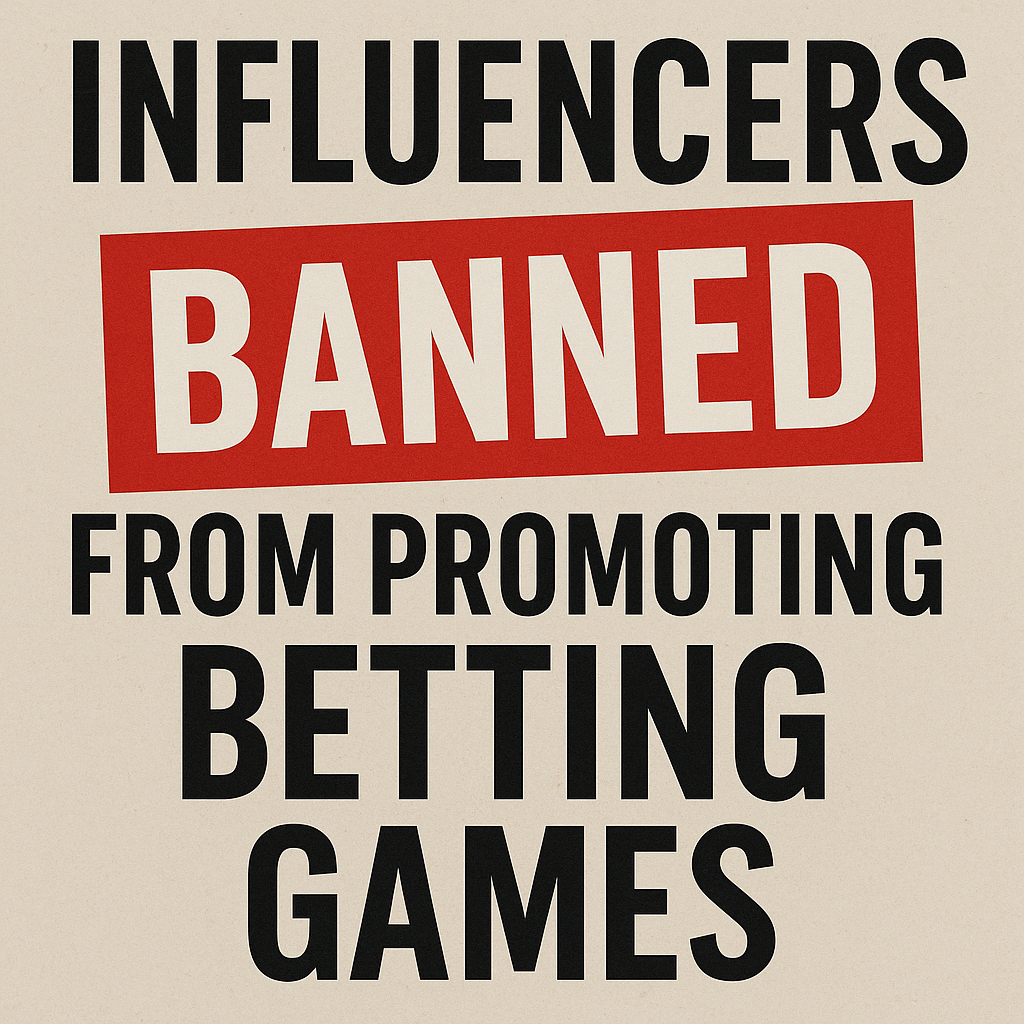In a landmark decision that has sparked conversations across the entertainment, advertising, and digital spheres, the Kenyan government has announced a new regulation banning influencers and celebrities from promoting betting games. The move, spearheaded by the Betting Control and Licensing Board (BCLB) in collaboration with the Ministry of Interior and the Communication Authority, aims to curb the growing influence of gambling culture among the youth and vulnerable populations in Kenya.
Thank you for reading this post, don't forget to subscribe!This decision, which came into effect in late May 2025, has sent shockwaves through social media and entertainment circles, where many public figures have been earning substantial incomes through brand ambassadorships and sponsorships linked to betting firms.
The New Directive: What It Says
The new regulation categorically bars social media influencers, actors, musicians, sports personalities, and other public figures from being involved in any form of advertising, endorsement, or promotion of betting platforms or gambling-related content. The directive states that:
“No celebrity, social media influencer, or public figure shall be engaged to promote betting games, lotteries, or any form of gambling in any media, including television, radio, print, and digital platforms.”
The directive further requires betting firms to submit all their marketing materials for approval before publication or broadcast, ensuring compliance with the newly reinforced advertising code of conduct.
Why the Ban?
The government cites rising gambling addiction, financial distress among youth, and the glamorization of betting as key motivations behind this sweeping move. Several studies have shown a worrying trend: many young Kenyans, lured by the flashy lifestyles of influencer-promoted betting platforms, have fallen into cycles of debt, addiction, and despair.
According to a 2024 report by the National Authority for the Campaign Against Alcohol and Drug Abuse (NACADA), over 70% of youth between 18 and 35 had engaged in betting in the past year, with a significant number admitting to spending their school fees or family money on bets.
The government believes influencers play a substantial role in this trend, often portraying betting as a quick and easy route to wealth. Authorities argue that this distorts reality and leads to irresponsible financial behavior.
Impact on the Influencer Economy
The ban is a major blow to Kenya’s vibrant influencer industry. Over the past five years, betting firms have become some of the most lucrative partners for local content creators, athletes, and entertainers. Well-known personalities have been pocketing millions through sponsorships, paid posts, and brand endorsements.
Several celebrities, including social media stars and musicians, have already begun distancing themselves from betting-related content following the directive. Some influencers took to social media expressing concern over the loss of income, while others voiced support for the government’s decision, citing ethical concerns and the welfare of their fans.
Digital marketers are now scrambling to re-strategize as betting companies halt campaigns and seek alternative promotional channels.
Betting Companies Push Back
Predictably, betting companies have not taken the news lightly. Industry leaders argue that the directive is too harsh and could have adverse effects on the economy, particularly in terms of advertising revenues, employment, and tax contributions.
Some firms have hinted at the possibility of challenging the ban in court, arguing that it infringes on commercial freedom and unfairly targets the gambling sector, which is legally licensed and regulated in Kenya.
Industry insiders, however, acknowledge that the government’s crackdown was a long time coming, especially after previous warnings and failed attempts at voluntary moderation.
Social Media Users React
Public reaction on platforms like X (formerly Twitter), Facebook, and TikTok has been mixed. While some users have welcomed the decision, praising the government for protecting young people from exploitation, others have criticized it as moral policing and an attack on personal freedoms.
A viral post on X read:
“Banning influencers from promoting betting is a good move. We’re tired of seeing every celebrity post screenshots of imaginary wins and fake jackpots. Let them find honest work.”
Others questioned the ban’s selective nature:
“Why only influencers? What about mainstream media? TV and radio are full of betting ads every evening. Is this really about protecting youth or targeting digital success?”
Historical Context: Kenya’s Love-Hate Relationship with Betting
Kenya has had a complex relationship with betting. With some of the largest betting markets in Africa, the country has witnessed exponential growth in online gambling since the early 2010s. Local firms like SportPesa, Betika, and Mozzart Bet have dominated the market, sponsoring major sports teams and becoming household names.
In 2019, the government implemented a temporary crackdown, revoking licenses and introducing stiff taxes to regulate the sector. However, after legal battles and policy negotiations, many firms returned to the scene—often with even more aggressive marketing strategies.
This new influencer ban marks the government’s most aggressive stance yet and could set a precedent for other countries grappling with similar issues.
What’s Next?
For influencers, this ban could force a reckoning on the nature of content and monetization in Kenya’s digital economy. Many are now exploring partnerships in non-controversial industries like fintech, fashion, real estate, and e-learning.
For consumers, especially the youth, this may signal a shift in what dominates their feeds—less glamourized gambling, more intentional content.
For betting companies, it’s back to the drawing board. Will they pivot to more community-based campaigns or resort to underground marketing tactics?
And for the government, the success of this policy will depend on consistent enforcement, public education, and perhaps most critically—offering alternative avenues for youth empowerment and economic participation.
